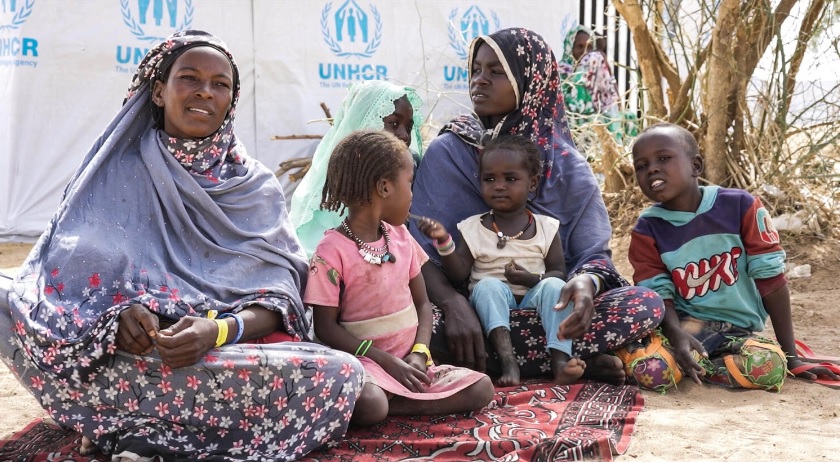
United Nations: Sudans War Continues to Send Refugees to Chad and South Sudan
moatinoon
The United Nations World Food Programme announced on Monday that the war in Sudan continues to force thousands of families to cross borders into Chad and South Sudan every week, with a rise in severe malnutrition cases, especially among children.
Michael Danford, the Regional Director for the World Food Programme in East Africa, stated from the border city of Renk in South Sudan, where about half a million war refugees have arrived, "The impact of this conflict extends to three countries - Sudan, South Sudan, and Chad - and has created the worlds largest displacement crisis. After nearly a year of war, we see no signs that the number of fleeing families across borders will slow down. Children and women crossing the borders into South Sudan or Chad suffer from hunger and arrive without resources."
The World Food Programme warned in a statement from Juba that at least 25 million people are suffering from rising hunger and malnutrition rates as the crisis in Sudan sends shockwaves across the region, forcing thousands of families to cross borders into Chad and South Sudan every week.
It added that 18 million people are experiencing acute food insecurity within the country, and approximately 3.8 million Sudanese children under the age of five suffer from malnutrition. Most of them are trapped in conflict zones, where the World Food Programme and other relief agencies struggle to maintain continuous access. Those who can escape flee to places like South Sudan or Chad, exacerbating the already difficult humanitarian situations in both countries.
Those arriving in South Sudan today join families already suffering from reduced food rations and severe hunger. Malnutrition is rapidly increasing among children living in temporary camps. Trends observed by the World Food Programme indicate that nearly 4% of children under five crossing the border into South Sudan suffer from malnutrition upon arrival. However, this figure rises to 25% among children at the Renk border crossing near the Sudan-South Sudan border, suggesting that the longer people spend in temporary camps, the higher the likelihood of malnutrition.
Danford said, "Unless this conflict is resolved, humanitarian agencies are granted unrestricted access and receive funding, this crisis will worsen."
"We need to be able to provide support to families in Sudan to avoid turning the worlds largest displacement crisis into a famine disaster as we approach the lean season."
In Chad, more than 553,000 Sudanese, mostly from Darfur, have fled since the outbreak of the conflict. It was found that about 40% of refugee children brought to the emergency clinic in one reception camp suffer from severe malnutrition. The malnutrition rate in many Sudanese refugee camps in Chad - including camps predating the current war - is much higher than the emergency threshold set by the World Health Organization, which is 15%. The World Food Programme had to prioritize scarce resources for newcomers, many of whom cross the border with nothing. This means that previously existing refugees no longer receive assistance, but they are not necessarily in a better situation than those arriving today.
The devastating famine catastrophe looms as nutritional needs rise in Sudan, South Sudan, and Chad. Humanitarian aid is crucial, yet the World Food Programme faces a funding gap of around 300 million over the next six months.

